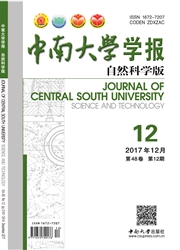

 中文摘要:
中文摘要:
采用电导率测试、常温力学性能测试、慢应变速率拉伸、透射电镜和正交试验等手段,研究双级时效对1933铝合金锻件力学性能、抗应力腐蚀性能及微观组织的影响。研究结果表明:与T6态相比,通过合适的双级时效制度(110℃/6 h+160℃/8 h或120℃/12 h+160℃/6 h),锻件的抗拉强度和屈服强度分别下降3.8%和1.0%,电导率却提高了19.5%,抗应力腐蚀性能显著提高。双级时效中第2级时效温度是控制锻件性能的关键因素,通过合理的双级时效制度,机体中的沉淀相细小弥散,晶界上的η相粗大且不连续,使得锻件具有良好的综合性能。
 英文摘要:
英文摘要:
The influence of two-step aging on the mechanical properties,stress corrosion cracking resistant and microstructure of 1933 aluminum alloy forging were investigated by electrical conductivity test,ambient temperature tensile properties test,transmission electron microscopy and orthogonal test.The results show that compared with the peak aged sample,the ultimate tensile strength and yield strength of the two-step aged samples(110 ℃/6 h+160 ℃/8 h or 120 ℃/12 h+160 ℃/6 h) are decreased by 3.8% and 1.0%,respectively.Meanwhile,the conductivity is enhanced by 19.5% with an evident improvement in the stress corrosion cracking resistant.The temperature of the second step aging is the most significant factor to control the properties of the alloy.After the proper two-step aging,the fine precipitates are presented with the matrix,and the grain boundaries are decorated with coarser η particles which are distributed continuously.
 同期刊论文项目
同期刊论文项目
 同项目期刊论文
同项目期刊论文
 期刊信息
期刊信息
